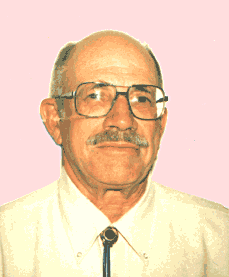|
Recently I wrote an article about the military draft. A gentleman named John H. Simmons wrote a letter exception to my comments. Two things seemed to upset him. First, he objected to my observation that things didn't go very well for us in Vietnam. Second, he seemed to feel only combat veterans knew anything about the military or are entitled to an opinion about it.
John, I hate to be the one to break the news to you, but we lost the war in Vietnam. Just flat-out lost and got run out of the country. Sorry you never got the word. It was mentioned quite a bit at the time.
There were many reasons why we lost the war, including an inept South Vietnamese government, foreign aid to North Vietnam, terrain that favored their style of warfare over ours, superior enemy knowledge of the area, political interference in military operations, and lack of clear goals. It is clear, however, that one cause of the military's problems in Vietnam was the government's decision to rely on a draft and largely ignore the Reserves and National Guard, who were older, more mature, better trained, disciplined and motivated than most of the youngsters scooped up in the draft. At the time of the Vietnam war, these units contained many combat veterans from Korea and World War ll.
It is true most drafters served honorably and well, particularly given their limited training. It is also true that a tiny fraction concentrated on making trouble and the failure to remove them, because of fears that if they got out of the military by making trouble, others would be inspired to become troublemakers, had a negative effect on discipline, morale, and unit effectiveness. By the end of the war discipline was in shambles, drug use widespread, attacks on officers not unknown, and effectiveness limited.
After the war our military leadership, made up of Vietnam combat veterans, recognized that there must be better ways to run a war and developed a new concept, which in the Army was known as the "one Army" or "total Army" concept. This concept said that in the future the military would not depend on the draft, but would expand by calling up the Reserves and National Guard. To do this Reserves and National Guard would be manned, trained and equipped to the same standards as the active military. Before this, they had often been undermanned stepchildren of the active forces equipped with worn-out, obsolete hand-me-downs and seen by the active forces as a drain on resources they wanted for themselves. It took years to implement the concept, upgrade training and issue top-notch equipment, but the benefits have been apparent not only in the Gulf war, but in many other tasks where the reserve and Guard have been called to serve alongside active units. Our active and inactive units have indeed become a seamless organization in recent years.
Mr. Simmons contention that only combat veterans understand the military is absurd. What about General Eisenhower. He commanded the Normandy invasion and the march across Europe that ended World War ll. in Europe, but had no personal combat experience, having spent World War l engaged in training activities within the United States. What about Vice President Chaney, who did a terrific job of running the Gulf War as Secretary of Defense but never served in the military at all, let alone in combat. George Armstrong Custer, on the other hand served with distinction in several Civil War battles before that little misunderstanding out west with the Sioux and Cheyenne failed to end on a happy note.
Those who have served in combat deserve our respect and gratitude, but getting shot at does not automatically turn one into an expert on all aspects of the military or anything else.
|
|

